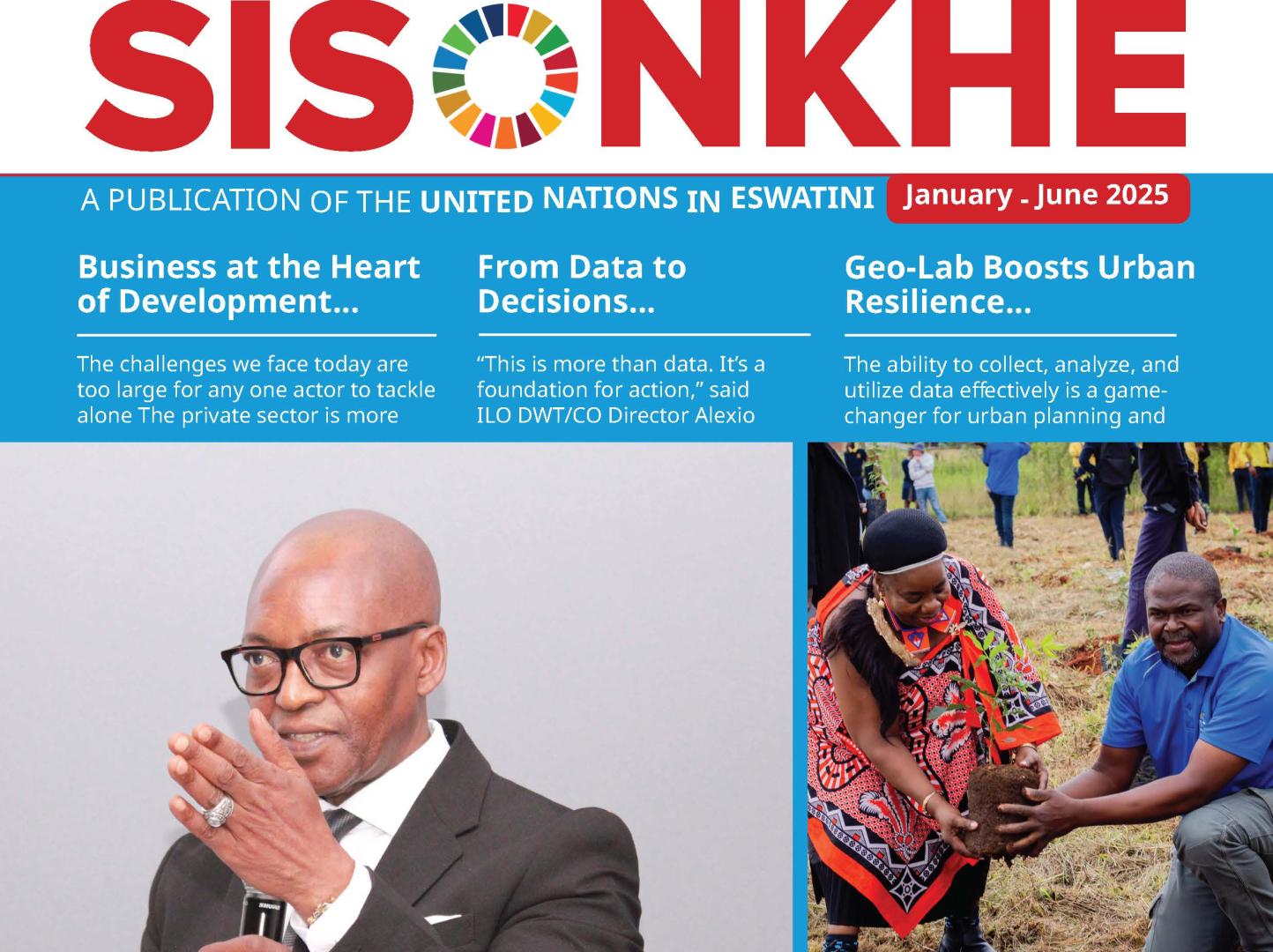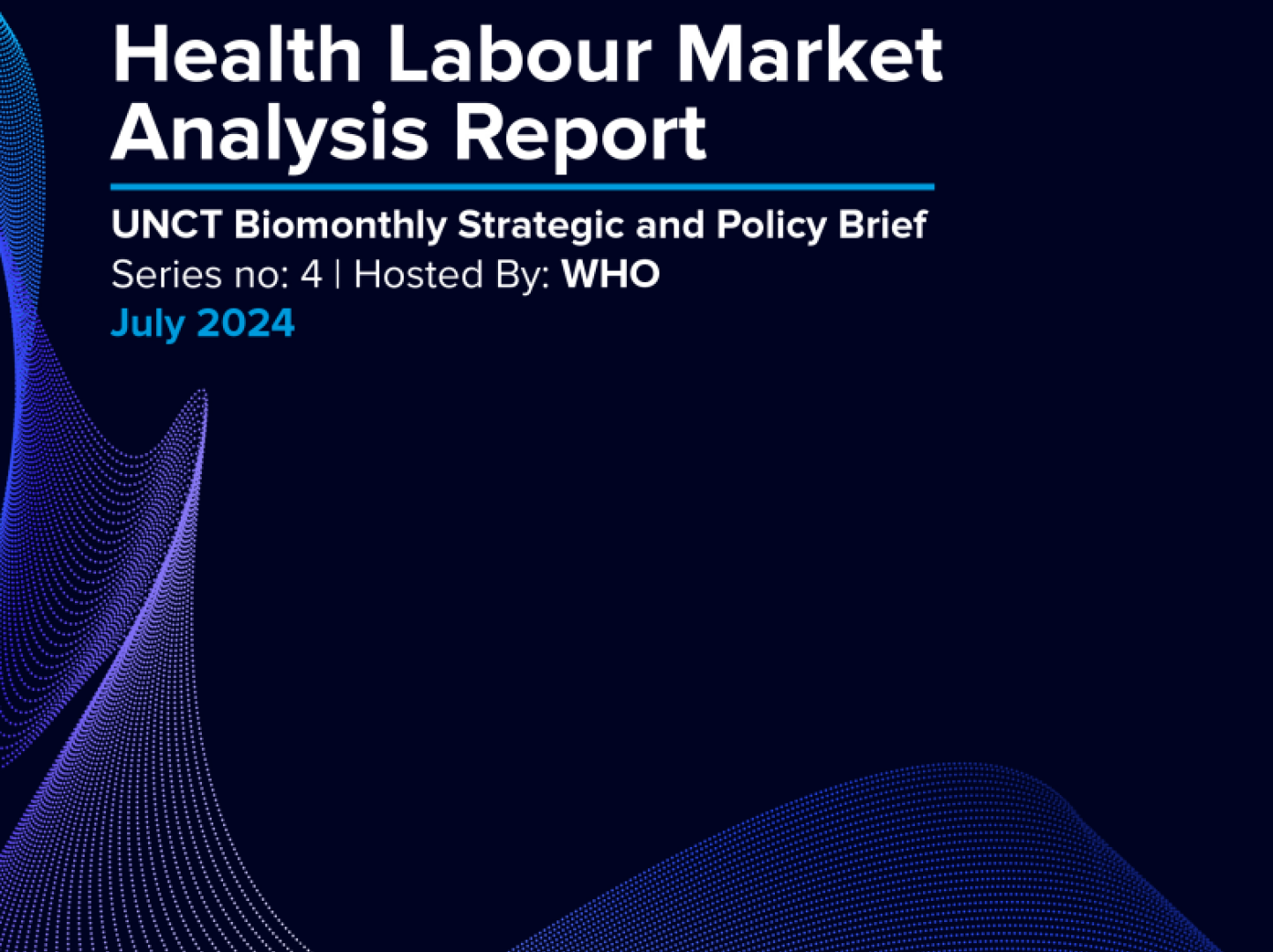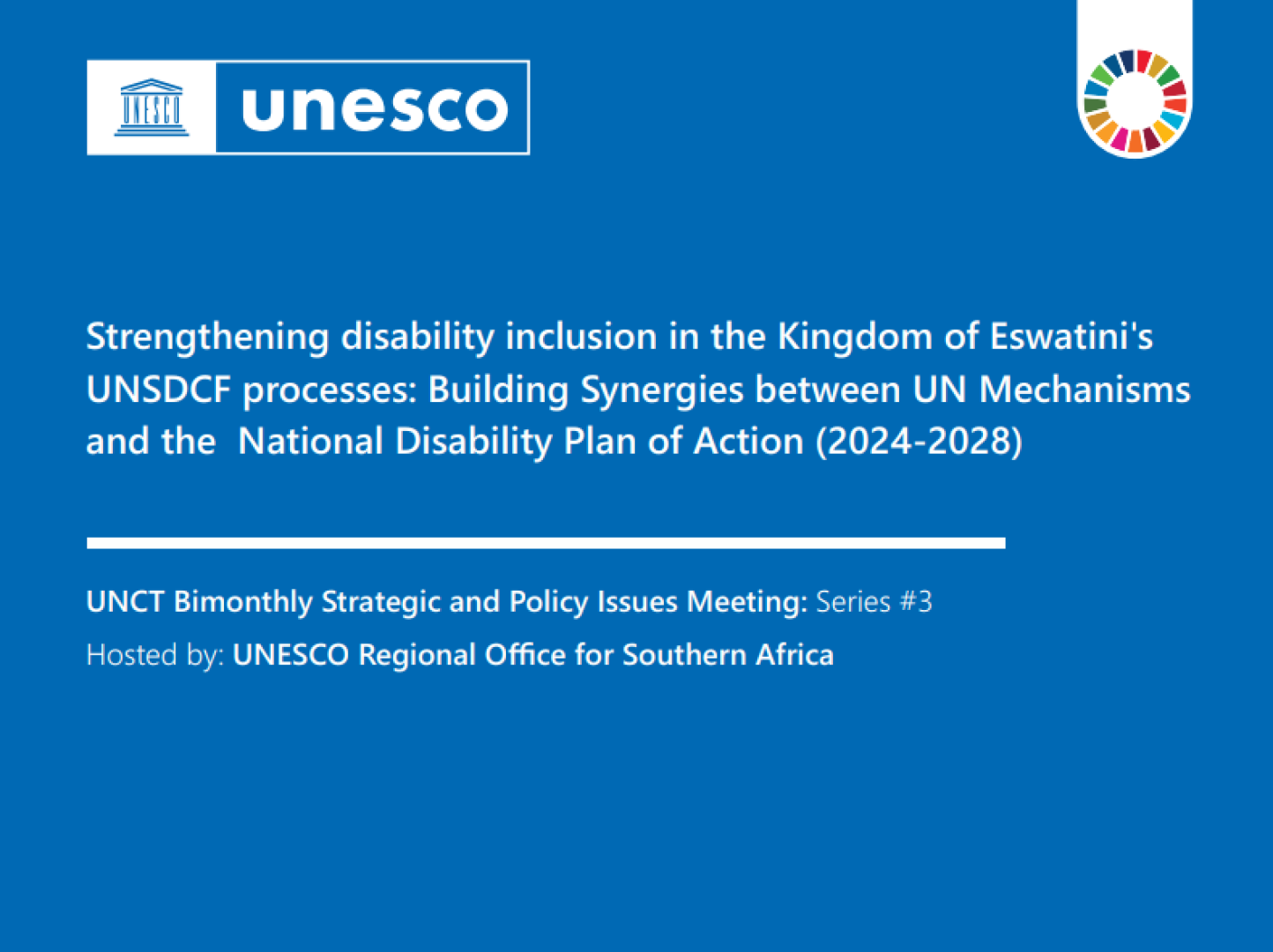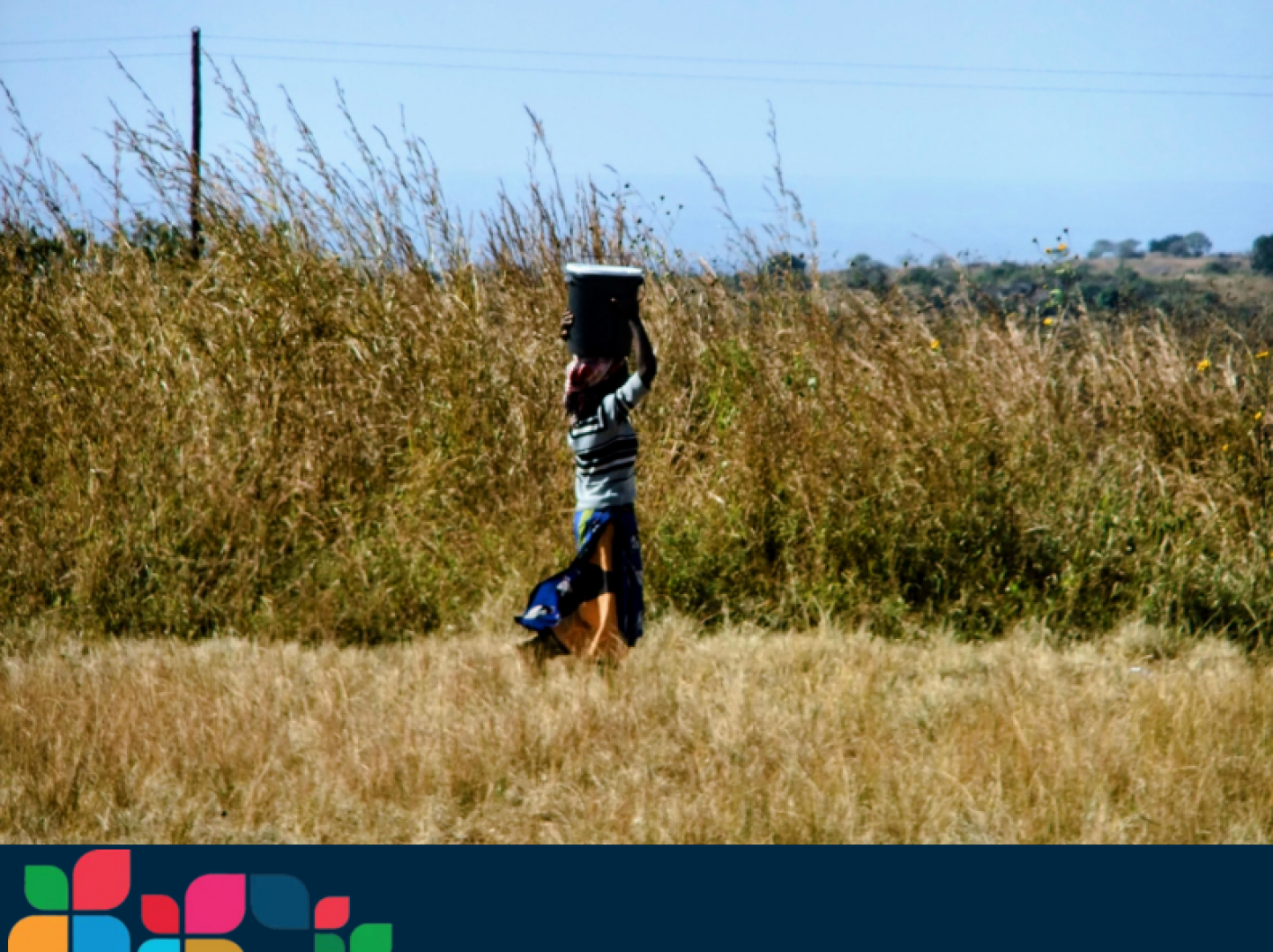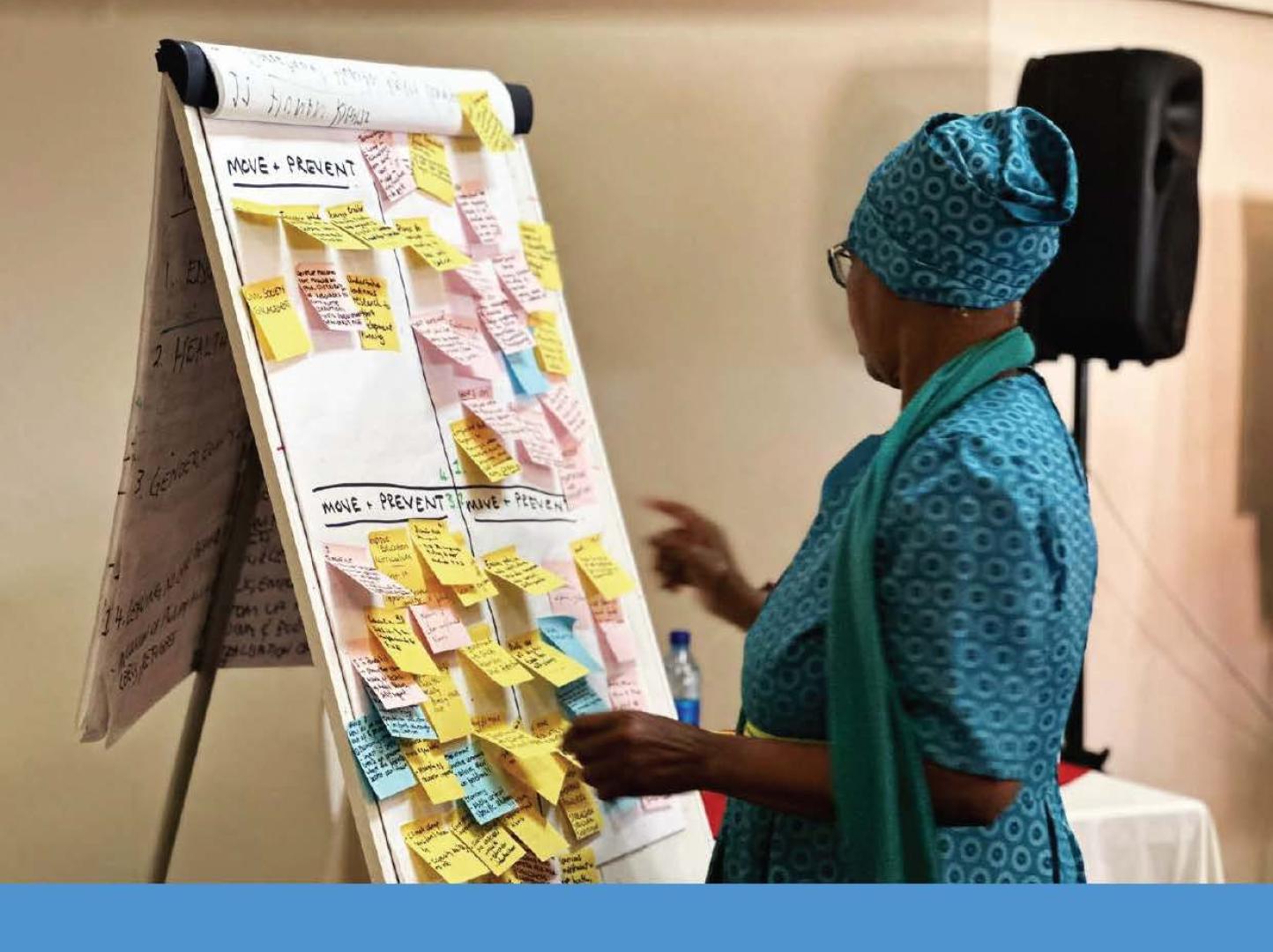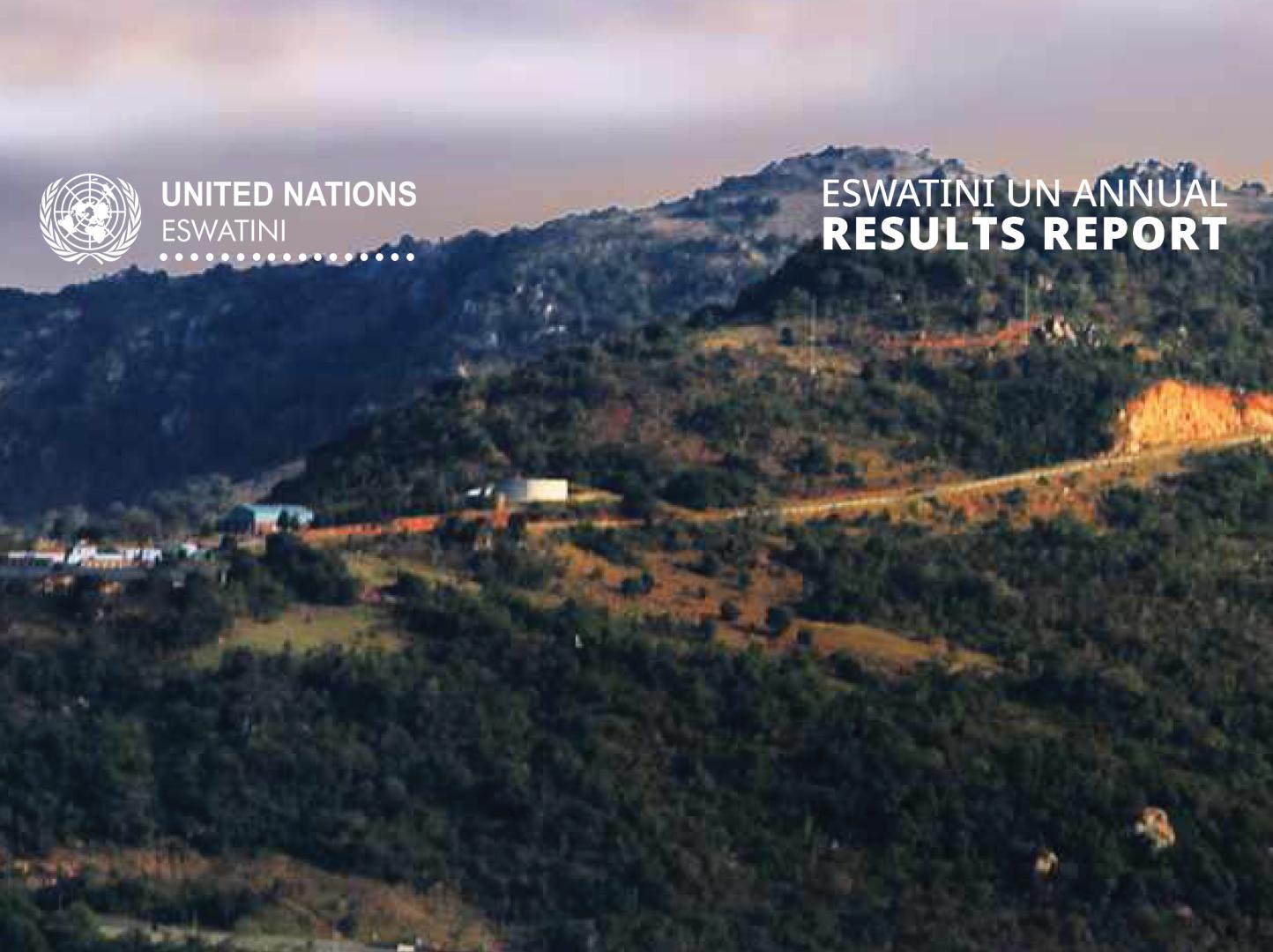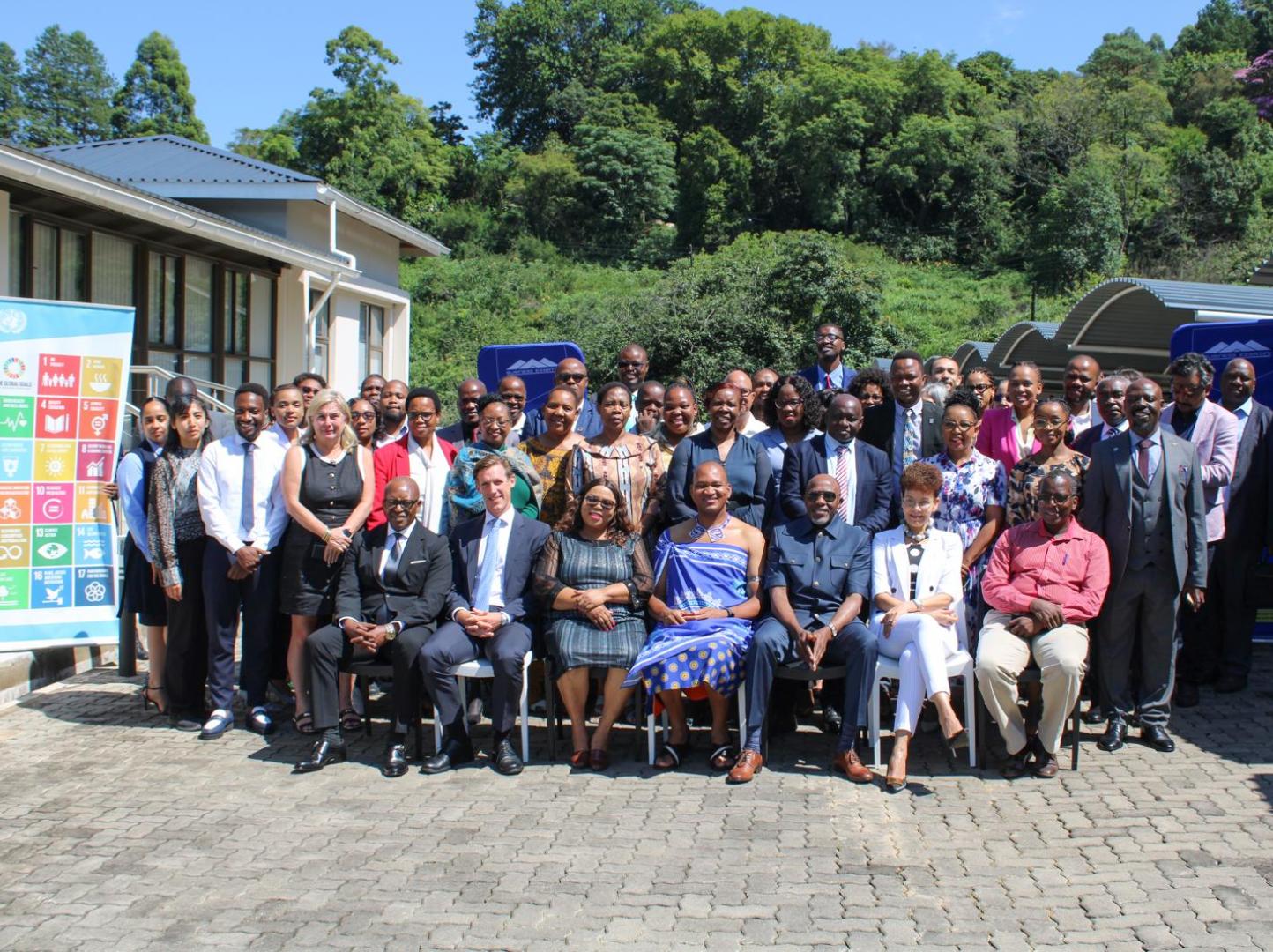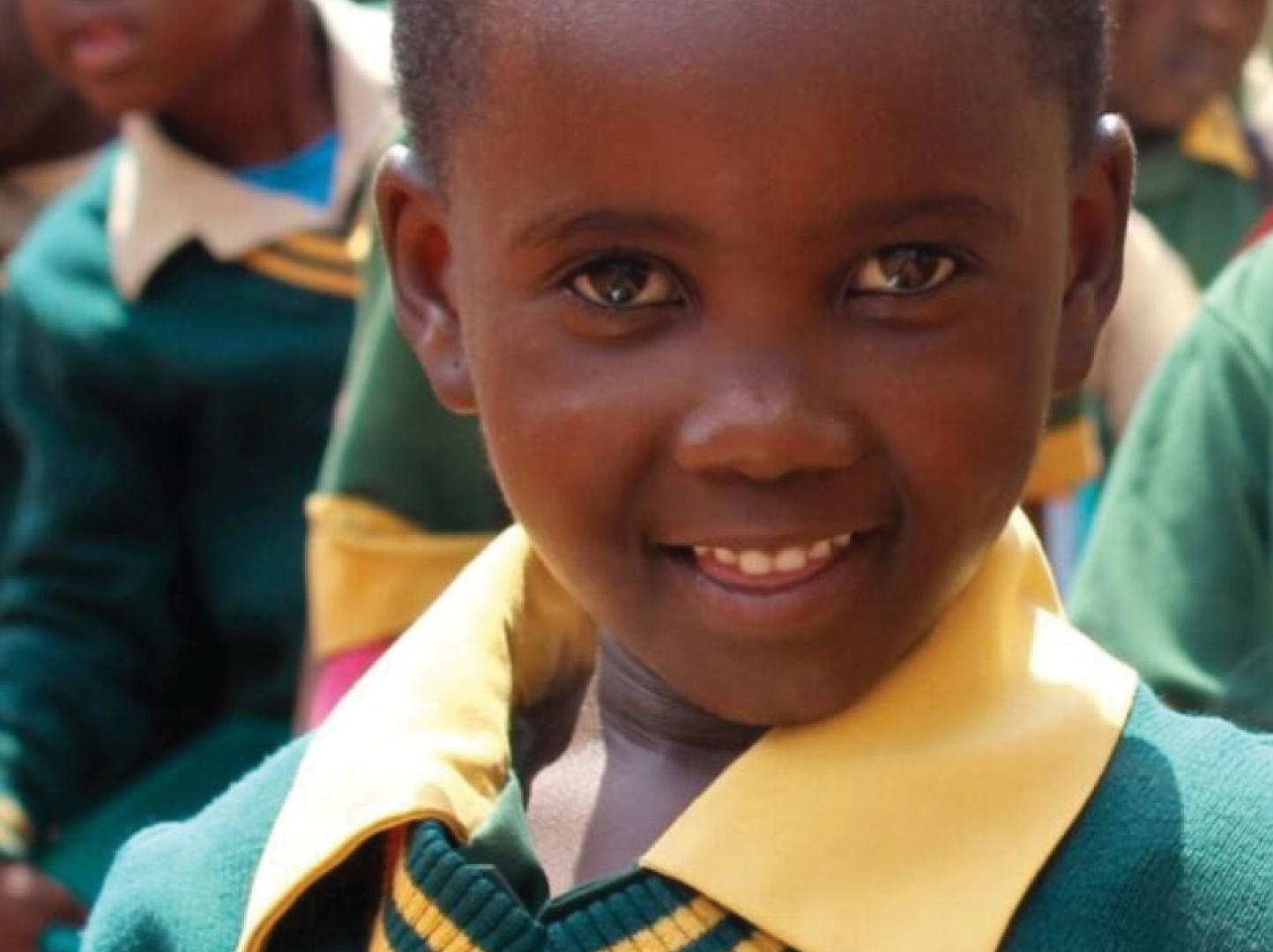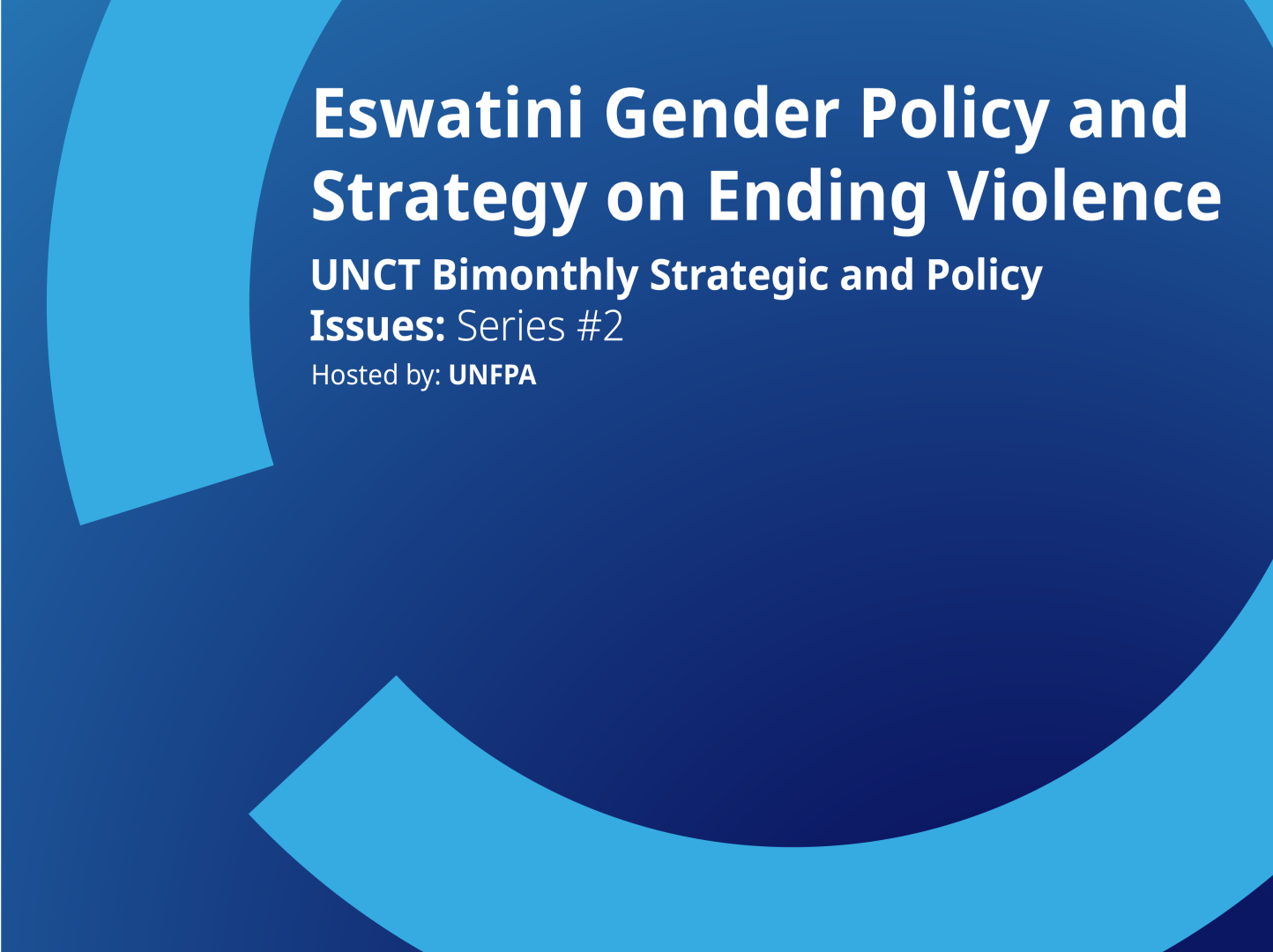Latest
Speech
25 November 2025
Girls belong online, not on edge: Unite against digital violence
Learn more
Story
14 November 2025
Building the Future Together: Eswatini and the UN Advance a Shared Agenda for Prosperity
Learn more
Story
24 October 2025
80 Years of Global Cooperation – We the Peoples of the United Nations
Learn more
Latest
The Sustainable Development Goals in Eswatini
The Sustainable Development Goals are a global call to action to end poverty, protect the earth’s environment and climate, and ensure that people everywhere can enjoy peace and prosperity. These are the goals the UN is working on in Eswatini:
Press Release
13 February 2025
Private Sector and United Nations Forge Stronger Ties for Eswatini’s Future Under the UN-Government Cooperation Framework for 2026-2030
As the UN shapes this critical framework, consultations with key national stakeholders ensure that the strategy aligns with Eswatini’s development priorities. A most recent step in this process was the high-level dialogue with the Government on 16 January, led by the Right Honourable Prime Minister, which focused on the CF’s strategic direction and key areas of intervention. Building on these discussions, today’s dialogue marked a significant milestone, integrating the private sector’s voice into the country’s trajectory for the next five years. It provided a platform for the UN to present the draft strategic priorities of the 2026–2030 Cooperation Framework, and for industry leaders to share insights on mobilizing collective efforts to build a resilient and thriving Eswatini.Reflecting on the importance of partnerships, Nathi Dlamini, CEO of Business Eswatini, remarked: "Being part of BE, I am reminded of the power of collaboration. In-country, we have seen firsthand how partnerships between the public and private sectors, civil society, and international organizations can transform economies, uplift communities, and create a more equitable future for all."Echoing the words of Business Eswatini’s CEO, Mvuselelo Fakudze, President of Business Eswatini, emphasized: "The private sector is a vital partner in the pursuit of the Sustainable Development Goals (SDGs). We recognize that our success as businesses is deeply intertwined with the well-being of the communities we serve. A thriving economy, a healthy environment, and an inclusive society are not just aspirations—they are prerequisites for sustainable business growth."With only five years left to achieve the 2030 SDG targets, the Resident Coordinator of the United Nations in Eswatini, George Wachira, highlighted the indispensable role of the private sector in Eswatini’s economic progress and long-term sustainability, stating: "The private sector is more than just an engine of economic growth; it is a catalyst for transformation. You drive innovation, deploy cutting-edge technologies, build skills, continuously improve efficiency, lift people out of poverty, and make money out of it!"Mr. Wachira also highlighted the world’s "polycrisis," where developing nations face dwindling development support and steeper financial barriers compared to developed countries. Despite these challenges, he underlined that today’s complex global landscape also presents opportunities to rethink development strategies and embrace bold, innovative solutions.In the light of today’s discussions, the UN reaffirmed its commitment to working closely with the private sector to drive meaningful change and accelerate progress toward the SDGs and opened the floor for open dialogue. The United Nations assured that insights gathered during this dialogue will inform the final Cooperation Framework, ensuring it resonates with Eswatini’s comprehensive aspirations and the broader global agenda for sustainable development.
1 of 3
Press Release
17 January 2025
PM leads Government and United Nations Dialogue on New Development Cooperation Framework for 2026-2030
The event aimed to ensure that the Government and the UN had shared understanding of the strategic priorities of the new Cooperation Framework and would co-own and co-lead its implementation. It provided an important platform for dialogue and alignment between the Government and the UN to pursue shared objectives of transforming lives and achieving sustainable national development. The UN Development Cooperation Framework represents the collective offer of the United Nations to support the Kingdom of Eswatini in its achievement of the Sustainable Development Goals. The current Framework ends on 31 December 2025, hence the development of a new one for 2026-2030. In his keynote address, Prime Minister, Russell Dlamini emphasized that the development challenges facing the country were undeniable including those relating to unemployment, poverty and inequalities, education, climate and national cohesion, all of which needed to be addressed as part of the vision of national transformation. “The Government of Eswatini envisions a new strategy for an era characterized by inclusivity, resilience, and prosperity. Guided by His Majesty’s visionary call for “Nkwe!”—a bold and agile approach to national development—we aim to build a nation where every LiSwati can thrive.’Mr. Dlamini, further emphasized the importance of designing the new Cooperation Framework with clarity, resolve, and an unwavering focus on delivering tangible outcomes for the people of Eswatini, highlighting the imperative of aligning the United Nations’ work with the country’s national priorities and delivering as one United Nations. The Prime Minister went on to outline areas where the UN could support including transforming the public service to facility economic transformation, accountability and service deliver; strengthening governance; education; health; job creation; and food sovereignty. Dr. Thambo Gina, the Minister of Economic Planning and Development and the co-convenor of the meeting, underlined that “the Government of the Kingdom of Eswatini shares the universal principle of putting inclusiveness at the core of effective partnerships for development. The aim is to bring together the perspectives and contributions of all stakeholders: government, development partners, civil society and business.”The UN Resident Coordinator, Mr. George Wachira, underscored that the “dialogue offers a crucial opportunity to build a common understanding of the UN’s role in Eswatini and, more specifically, to co-create with Government the content of the UN’s contributions in the final five years of Agenda 2030. At the same time, the dialogue provides a base for cementing mutual accountability for the achievement of an agreed programme of action.”Guided by the external evaluation of the current CF and the Common Country Analysis, this high-level dialogue offered the ideal platform to remind that the United Nations remains a trusted partner in an ever-evolving geopolitical context. “While the times have changed and the context continues to evolve, the ideals for which the UN was established – global solidarity, cooperation, human rights and dignity, peace and security – are timeless and will remain relevant”, said Mr. Wachira. “As a UN Country Team in Eswatini, we represent those ideals. Our diversity as a family may at times appear to stand in the way of efficiency, effectiveness and coherence, and we are alive to that; it also represents the mosaic of expertise, resources, and experience to tackle complex global problems.”It is expected that the new Cooperation Framework will be ready by June and signed by November for implementation to commence on 1 January 2026.
1 of 3
Press Release
20 February 2025
Applications Now Open for the 2025 Reham al-Farra Memorial Journalism Fellowship
Since its inception in 1981, the fellowship has hosted 670 journalists from 168 countries, providing them with the tools to produce high-quality coverage of the UN General Assembly and related events. Many former fellows have built strong international networks, advancing their careers and contributing to more informed global reporting.Established as the Department of Public Information (DPI) Training Programme for Broadcasters and Journalists from Developing Countries under United Nations General Assembly Resolution 35/201, the fellowship was renamed in 2003 in honour of Reham Al-Farra, a 29-year-old Jordanian UN Public Information Officer who tragically lost her life in the 19 August 2003 bombing of the UN headquarters in Baghdad.RAF fellowship participants gain firsthand exposure to the inner workings of the United Nations, equipping them to report more effectively on key global issues. Fellows engage with senior UN officials, media experts, and specialized UN speakers, receiving valuable training while expanding their professional networks and strengthening connections with UN offices to support future reporting.The programme enjoys broad support within the UN system, including from the Deputy Secretary-General and the Spokesperson for the Secretary-General. Past fellows have had the opportunity to meet with high-ranking officials, such as the UN Secretary-General, the President of the General Assembly, and Permanent Representatives to the UN. Additionally, participants engage with international news organizations and receive training from leading media experts.This prestigious programme, scheduled for September and October 2025, is open to journalists aged 22 to 35, from developing countries and economies in transition, with experience reporting on UN-related issues. Journalists from Eswatini are strongly encouraged to apply and take advantage of this exceptional opportunity to gain valuable insights, enhance their expertise, and contribute to more in-depth coverage of international affairs.The application period for the 2025 RAF fellowship runs from 17 February to 31 March 2025. Interested candidates can apply at: https://www.un.org/en/raf/application2025.
1 of 3
Story
14 November 2025
Building the Future Together: Eswatini and the UN Advance a Shared Agenda for Prosperity
The UN delegation comprised officials from Agencies, Funds and Programmes with a physical presence in the Kingdom of Eswatini, including UNDP, UNFPA, UNICEF, WHO, WFP, UNAIDS, FAO, IOM, UNESCO, and IFAD. The meeting was also attended by the Rt. Hon. Prime Minister Russell Dlamini and the Minister for Foreign Affairs and International Cooperation, Senator Pholile Dlamini-Shakantu.The meeting presented a opportunity for the UN to brief His Majesty on its work over the last five years under the 2021-2025 cooperation agreement, and on the strategic direction of the new cooperation framework for 2026-2030. The briefing meeting took place as the United Nations marks its 80th anniversary globally amid a complex global landscape shaped by the accelerating impacts of climate change, rising geopolitical tensions, constrained development financing, and a declining sense of trust in multilateralism. Against this backdrop, the visit provided an important opportunity for the United Nations to reaffirm its steadfast commitment to the Kingdom of Eswatini and to the advancement of sustainable and inclusive development for all emaSwati. In commemoration of the 80th anniversary, the UN presented His Majesty with a certificate of appreciation in recognition of His Majesty’s and Eswatini’s contribution to global cooperation and solidarityIn his remarks to His Majesty, Mr. Wachira conveyed the United Nations’ deep appreciation for the Kingdom’s continued collaboration through the leadership of His Majesty King Mswati III. He highlighted the joint progress achieved over the past five years in key areas such as economic diversification, gender equality, youth empowerment, health, education, and climate resilience.Mr. Wachira commended Eswatini’s emergence as a regional leader in sustainable finance through innovative frameworks such as the Green Taxonomy and Priority Sector Lending, which are unlocking green investments and driving inclusive growth. He further acknowledged the adoption of the 2023 National Gender Policy and the growing representation of women in Parliament as significant milestones in advancing equality and empowerment. His Majesty King Mswati III recounted the origins of the UN in 1945 following the collapse of the League of Nation and reaffirmed Eswatini’s commitment to multilateralism as reflected in its continued advocacy for global reforms and participation in all important global forums. His Majesty expressed appreciation for the enduring partnership between the Kingdom of Eswatini and the United Nations, noting the tangible benefits this collaboration continues to bring to the lives of emaSwati. His Majesty expressed pride in Eswatini’s continued global leadership in the HIV response, as well as national progress in digital education, youth employment, and climate action, including the Kingdom’s early submission of its third Nationally Determined Contribution (NDC 3.0) under the Paris Agreement. He reiterated the call for a fair and equitable international systems that provides an equal opportunity for developing countries such as Eswatini to access development finance.Over the past five years, the UN–Eswatini partnership has mobilized more than E1.8 billion in support of national priorities, serving as an investment in people, progress, and shared prosperity that underscores the strength and value of multilateral cooperation.Looking ahead, the United Nations and His Majesty’s Government, led by Prime Minster Dlamini, will on 30 November 2025 officially launch the UN Sustainable Development Cooperation Framework for2026–2030, which will serve as the blueprint guiding joint efforts to advance Eswatini’s transformation agenda in alignment with the global Sustainable Development Goals (SDGs) and Eswatini’s National development priorities.
1 of 5
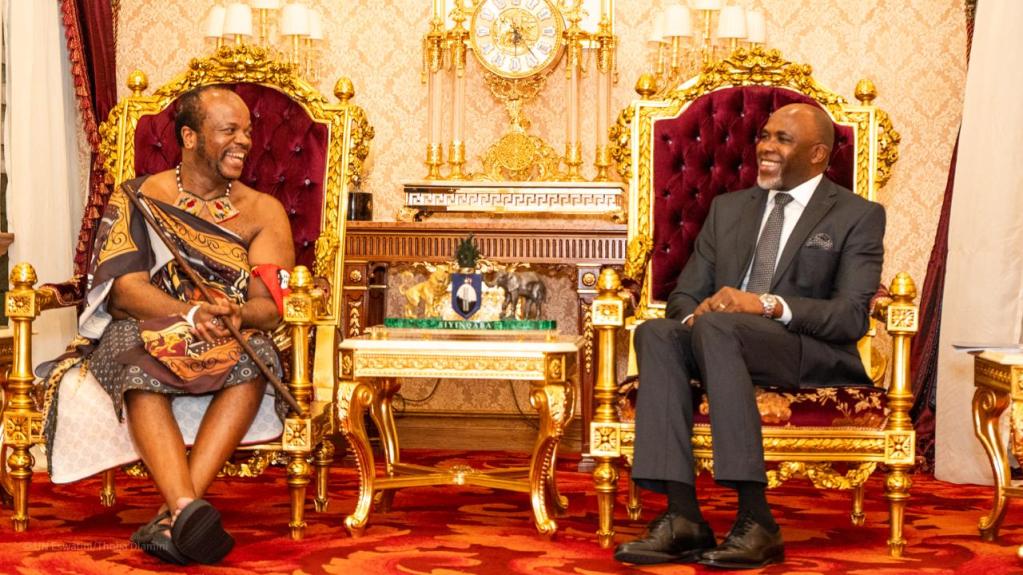
Story
24 October 2025
80 Years of Global Cooperation – We the Peoples of the United Nations
As we remember the day in 1945 when the United Nations Charter entered into force, it is a good time to recall the memorable opening line of the UN Charter: “We the Peoples of the United Nations, determined to save succeeding generations from the scourge of war….” The founders of the UN were compelled both by experience and by a vision: the experience of the devastation of the Second World War when dialogue and peaceful resolution of differences failed with catastrophic consequences; and a vision of global cooperation that could avert a repeat by continuously strengthening the foundations of peace. This year’s commemoration also marks the 80th anniversary and provides a good moment to reflect on the journey traveled and the one ahead.For the past eighty years, the United Nations has stood as a beacon of peace, solidarity, and collective progress, embracing its mandate of maintaining international peace and security, preventing conflict and fostering dialogue among nations, while building the foundations of peace through sustainable development, human rights, and global cooperation. Today, it is hard to imagine our world without the Universal Declaration of Human Rights, perhaps often described as the most consequential document of our times. Since 1948, the UDHR has laid the moral foundation for human dignity and freedom, shaping the global peace and security agenda, inspiring world-wide decolonisation and independence, giving form to constitutions and bills of rights around the world. Through the years, our UN has been at the centre of some of humanity’s greatest triumphs – the eradication of smallpox and the restoration of the ozone layer, demonstrating what global cooperation can achieve. For 80 years, the UN’s work has helped build better societies: 1.5 billion people have escaped extreme poverty since 1990, and millions of lives have improved through gains in health, education, energy, and digital connectivity since the adoption of the Millenium Development Goals in 2000 and the more ambitious Sustainable Development Goals in 2015. For 80 years, the UN, via our various agencies, has delivered life-saving aid to the most vulnerable people around the world - reaching tens of millions every year: The UN World Food Programme (WFP), feeds 160 million across 120 countries and territories while the Food and Agriculture Organisation (FAO) supports farmers and shapes food systems. The UN supplies vaccines to 45% of the world's children. The UN Children’s fund (UNICEF) has saved more than 150 million lives with childhood vaccines while, alongside UNESCO, they have helped shape education for our children and young people. UN health agencies, including the World Health Organization, UNAIDS and the UN Fund for Population Activities (UNFPA) save millions of lives preventing the spread of deadly diseases such as HIV, Malaria, tuberculosis, and Ebola and educating our young people on safe living. Our UN Development Programme (UNDP), the UN Environment Programme (UNEP) and Economic Commission for Africa have helped shape policy and development solutions, supporting environmental sustainability, economic expansion and job creation. Our International Labour Organization, the Organization for International Migration, and the UNHCR, the UN refugee agency, remind us of our obligations to ensure decent and safe work, dignified migration, and care for refugees, respectively, while the elimination of discrimination against women and ending violence again women and girls run across UN’s work. More, Not Less Global Cooperation As we mark the 80th anniversary of the UN, all is not well with global cooperation. While a war between great powers may have been avoided so far, the world is reeling from devastating and horrendous conflicts, from Sudan in Africa to Ukraine and Russia in Europe, to Israel and Palestine in the Middle East. There are multiple other ‘low intensity’ conflicts and violence around the world whose impacts on people are anything but low intensity. The world also remains off track to achieve the SDGs by the 2030 deadline. Persistent inequalities, climate change impacts, poor choices and inadequate investments continue to slow progress. Aachieving progress requires more, not less, commitment to multilateralism. Rather to the contrary, the commitment to global multilateral cooperation is on the wane. Over the last few years, UN agencies, along with many humanitarian and development NGOs, have been reeling from drastic funding cuts by Member States. As of the end of September, just 21% – or nearly US$9.6 billion – of the more than $45.3 billion needed to support life-saving action around the world this year had been received, a staggering decrease of over 40% compared to the same time in 2024. This reality is very acute as the organization celebrates its 80th anniversary under the theme “Building our Future Together.” Consequently, the Secretary-General Mr. Antonio Guterres has put forward proposals for reforms including initial restructuring activities and programme realignments, as well as efficiency proposals that improve delivery and cut costs, now under consideration by the General Assembly. However, the Secretary-General’s efforts require the strong recommitment to multilateralism.Eswatini’s Proud Place in Calls for Global Reforms Significantly, it was here in Eswatini that the Ezulwini Consensus, adopted in March 2005, first articulated the African Union’s unified position on the reform of global governance structures. The Consensus calls for a fairer and more inclusive global system that gives developing nations a stronger voice in institutions that shape financial flows and debt sustainability. The envisaged reforms have become even more urgent, as the old model of external ‘development’ or ‘donor’ funding has given way to that of ‘development financing’ which places the onus on governments to source finance through various instruments like loans, grants, or private investments.We applaud His Majesty King Mswati III effective use of international platforms to remind and urge for reform, of both the United Nations to ensure equitable representation, and of the international financing mechanisms to ensure fairness and access to affordable finance for developing countries. In his address to the UN General Assembly this year, he urged for a reinvigoration of the peace mandate of the organisation in the face of ongoing devastating conflicts.The United Nations as a trusted partner for Eswatini’s developmentOver the years, the United Nations family has stood alongside the Kingdom of Eswatini as a trusted partner in advancing sustainable development. Through close collaboration with the Government, civil society, and development partners, the UN has supported national efforts to strengthen institutions, expand opportunities, and improve the well-being of all EmaSwati. This partnership, rooted in shared values and mutual respect, reflects the very essence of ‘We the People of the United Nations - multilateral cooperation and global solidarity.
1 of 5

Story
16 October 2025
Eswatini Sets the Pace for Climate Diplomacy in Africa Ahead of COP 30
As the global community prepares for the 30th Conference of Parties, known as “COP 30”, the Kingdom of Eswatini is emerging as a regional leader in climate diplomacy and technical capacity building. At the forefront of this effort is the Government of Eswatini, with the Ministry of Tourism and Environmental Affairs (MTEA) playing a lead role in driving the country’s pioneering Climate Change and Environmental Diplomacy and Negotiations initiative.This week MTEA, with the support of the of the United Nations, launched a Multi-Stakeholder Dialogue themed "Empowering National Experts for Effective Environmental Policy Negotiations.” This initiative, designed to strengthen the negotiating capacity of Eswatini’s climate delegates, is being implemented with the support of multiple both resident (UNDP, WHO and FAO) and non-resident United Nations agencies with support from the African Regional Collaborative Platform, specifically the Opportunity Issue Based Coalition on Climate Action, Resilience and Food Systems (OIBC4) inclusive of UNFCCC, UNDP, FAO, UNEP, UNECA, IDEP, CEMUNE, and WMO. This intergovernmental effort is equipping negotiators with the tools, confidence, and clarity needed to engage effectively in international climate forums. Speaking at the launch, the Honourable Jane Mkhonta-Simelane, Minister of Tourism and Environmental Affairs stated that “this initiative reflects Eswatini’s unwavering commitment to climate leadership and regional solidarity,” adding that “by investing in our negotiators and fostering knowledge exchange, we are ensuring that Eswatini’s voice, and Africa’s voice are heard loud and clear on the global stage.”Mr. George Wachira, UN Resident Coordinator commended Eswatini for its pioneering efforts in climate and environmental action, stating that “Eswatini is not just participating, it’s leading.” Mr. Wachira stressed that the training could serve as a blueprint for other SADC nations and demonstrate how targeted training can elevate Africa’s climate voice globally.The program for the three-day training emphasized peer-to-peer learning between experienced and emerging negotiators, creating a dynamic environment for knowledge exchange and institutional growth. Furthermore, climate and negotiation experts from across the United Nations System delivered targeted trainings to enhance technical and strategic competencies.As COP 30 approaches, Eswatini’s leadership is being recognized as a model for replication across the continent. The initiative is helping to unify Africa’s stance on climate ambition, finance, and just transitions ensuring that decisions made at COPs translate into real-world action.The Government of Eswatini envisions this process as continuous and adaptive, with future iterations tailored to deepen sector-specific expertise and address emerging climate priorities.
1 of 5
Story
01 September 2025
Eswatini hosts the 14th edition of the United Nations All Africa Games
Honouring a tradition started in France in 1968, and which grew through the years to become the United Nations Inter-Agency Games, the United Nations in Eswatini and the Eswatini Federation of UN Staff Associations (FUNSA) were proud to host the 14th edition of the United Nations All Africa Games from 29 – 30 August 2025. Held in Lobamba, Eswatini, the games brought together nearly 400 United Nations personnel and their families from 14 United Nations country offices across the continent, for two days of greater UN collaboration, friendly competition, staff welfare, and cultural exchange. Over the two days, the Somhlolo National Stadium and Technical Center played host to various sporting events and games, including athletics, soccer, netball, tennis, basketball and many more. However, beyond the celebration of sporting ability, the games were a true representation of the diversity, and also the unity that defines the United Nations family in Africa. Speaking at the opening ceremony of the games the Honourable Minister of Sport, Culture and Youth Affairs, Mr. Bongani Nzima, stressed that “sports and culture are tools for unity, education & nation building, and that events such as the UN All Africa Games are able to strengthen bonds across Africa.” Further to the camaraderie shown during the sporting activities, the games also provided an opportunity for visitors to the country and the locals alike, to appreciate the country’s hospitality, together with the cultural richness and bountiful landscapes that make up the Kingdom of Eswatini. In her remarks, the Honourable Minister of Tourism and Environmental Affairs emphasized the importance of “preserving Eswatini’s natural environment and cultural heritage, which is vital to sustaining the country’s identity, biodiversity and future”. As the 2030 Agenda for Sustainable Development approaches its deadline, the preservation of cultural and environmental heritage has become more urgent than ever for achieving long-term development that is inclusive, resilient, and respectful of both people and planet. To conclude the event, a prizegiving gala dinner was held, which provided one last opportunity for good-natured rivalry, and cultural engagement. During the evening, the UN Resident Coordinator, Mr. George Wachira commended colleagues from far and wide for their demonstrated humility, humanity, integrity, respect, and inclusivity, that was on display throughout the games and stated that “we came as colleagues; we leave as friends. These Games have shown us that while we may wear different jerseys, we share the same purpose: to serve humanity”.As the 14th edition of the United Nations All Africa Games came and went, and as participants returned to their duty stations across the continent, they carried with them a renewed sense of purpose. With the 2030 Agenda in sight, this gathering served as a reminder that teamwork and solidarity, both on and off the field, remain essential to achieving sustainable development in Africa and beyond.
1 of 5
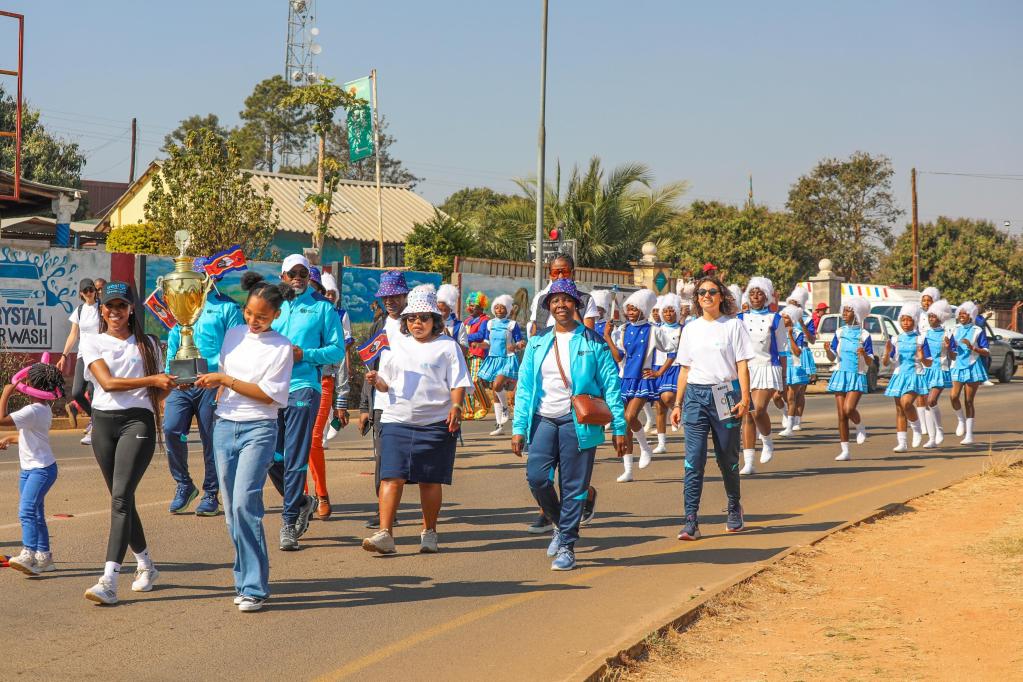
Story
25 August 2025
Landlocked But Not Blocked
Sustainable development is both urgent and complex. Navigating multiple challenges and arriving at development results can be a daunting task for any government. For landlocked countries, the climb to development is much steeper. First things first. Landlocked countries are those without direct access to open seas or oceans, meaning that they must rely on the countries around them to get their goods in and out of the country. There are 44 such countries world-wide, 32 of which are categorised by the United Nations as Landlocked Developing Countries (LLDCs).Why is landlockedness an issue in development? Development has a lot to do with efficiency and return on investments. LLDCs, including Eswatini, carry higher costs of transporting goods, complicated and time-consuming transit and cross-border procedures, reliance on other countries’ transport and port infrastructure. A landlocked country’s development often is tied to that of the countries around it – if a country is locked in by poor or unstable neighbours, it will struggle to do better than them. The opposite is true: if a country is locked in by prosperous neighbours, it has a better pathway to its own development. Today, the mean GDP per capita in LLDCs remains only 24 % of the global average, and child mortality is up to 25 % higher than the global rate, highlighting the urgent need for targeted interventions. Goods take an average of 42 days to enter, and 37 days to exit LLDC borders.The Awaza Programme of ActionIn its continued effort to spotlight the peculiar development needs of LLDCs, the United Nations convened the Third Conference on Landlocked Developing Countries (LLDC3) from 5-8 August in Turkmenistan, providing a valuable opportunity to align national development plans with regional strategies and global priorities.LLDC3 culminated in the Awaza Programme of Action (APOA), articulating a unified vision to enhance transit connectivity, digital transformation, and climate resilience. The APOA rightly emphasizes that LLDCs must pursue practical, coordinated actions across national, regional, and global levels. Central to this effort is enhancing trade as well as international and regional connectivity to facilitate development. Operationalizing APOA will not be automatic. It will require political and economic astuteness, national implementation toolkits, catalytic financing, a facilitative environment for private investments, amongst others. If stakeholders fail to act decisively, the momentum of LLDC3 risks being lost.Strengthening both the “hardware” and “software” of connectivity, from resilient roads, rail, energy, and air networks to harmonized legal frameworks and efficient cross-border procedures, is key. As the United Nations Secretary-General emphasized: “Geography should never define destiny…Yet for LLDCs, geography too often limits development opportunities and entrenches inequality.” When LLDCs are well-connected, entire regions can prosper. Not Blocked: Eswatini Can Overcome and Prosper There is no doubt that Eswatini has the vision and means to prosper despite its landlocked status. At the conference, I was privileged to listen to His Majesty King Mswati III’s strong statement, in which he aptly noted that “being landlocked is not just a geographic condition but a daily development challenge. High transport costs and vulnerability to global shocks slow our progress. Yet, these challenges inspire us to think innovatively and seize opportunities for cooperation.” I commend the equally strong participation of the Eswatini ministerial delegation of honourable ministers Pholile Shakantu, Savannah Maziya, Manqoba Khumalo and Ndlaluhlaza Ndwandwe, who reinforced the Kingdom’s priorities in infrastructural transformation, science, technology and innovation, and trade cooperation, integration and facilitation. My presence at the conference, alongside 14 of my fellow UN Resident Coordinators, underscored the UN’s commitment to providing coherent and integrated support for LLDCs. Collectively through the multiple platforms of the conference, we advanced transformative solutions across financing, climate resilience, trade facilitation and agri-food systems.Conferences are only as good as the action they inspire. First, the mixed record of structural change in LLDCs underscores the need for modern, evidence-based industrial policies. These should be co-created with the private sector, target a wide range of sectors, and include targeted investment in research, innovation, and intellectual property rights. Second, digital transformation is critical. With internet access reaching just 39% of the population in LLDCs, there is a vast opportunity for growth. Beyond borders, regional innovation hubs can be drivers of regional integration. Locally, we must do everything possible to bring down the per capita cost of data and connect our rural areas.Third, the vulnerabilities of LLDCs are compounded by climate risks. These countries contribute less than 3% of global greenhouse gas emissions but suffer disproportionately from impacts ranging from desertification in the Sahel to glacial retreat in South America. A concerted drive for equity and climate justice is key.Taken together, these measures can transform the vision of LLDC3 into tangible progress. For Eswatini, this agenda offers a direct pathway to achieving inclusive, resilient, and sustainable development, aligned with national priorities, AfCFTA integration, and regional ambitions outlined by SADC. Geography must no longer determine destiny. It is time to turn commitments into action.
1 of 5

Press Release
23 June 2025
Resetting Agenda on Climate Action: United Nations Secretary-General to Deliver Major Address
The Secretary-General will outline the progress made since the Paris Agreement was adopted a decade ago, examine the barriers that continue to stall climate action, and make a bold call to speed up pathways to energy transitions.The address is intended to build global momentum in the lead-up to key multilateral forums and national decision-making processes. It aims to inspire bolder commitments ahead of major international milestones such as the 2025 UN Climate Change Conference and to inform the next generation of national climate action plans, including Eswatini’s forthcoming third round of Nationally Determined Contributions, which are being led with the support of UNDP.The Secretary-General’s address will also underscore how transitioning to clean and affordable energy is not only feasible, but vital to delivering jobs, economic growth, energy security, and resilience, especially for developing countries. It will challenge the outdated perception that climate action is too costly, instead presenting evidence that greater investment in renewable energy is sound economic policy. “Climate action is essential not only for the planet but also for Eswatini’s economic growth, energy security, and the wellbeing of its people,” according to George Wachira, United Nations Resident Coordinator in Eswatini. “This address will reinforce the opportunity for Eswatini to lead the way in adopting sustainable energy solutions that align with our national development priorities and the Sustainable Development Goals.”The United Nations is inviting policy makers, civil society organizations, private sector, youth and members of the public to join the Secretary General as he unpacks the speech to the global community. Event Details:
Title: Moment of Opportunity: A Global Climate Address by the UN Secretary-General
Date: Tuesday, 24 June 2025
Time: 9:00 a.m. – 10:00 a.m. EDT (3:00 p.m. – 4:00 p.m. Eswatini Time)
Location: United Nations Headquarters, New York | Livestreamed Globally
Media representatives are encouraged to cover the event and engage with its outcomes. Digital platforms will carry the event live, and expert interviews will be available upon request.For media inquiries, please contact:
Sisekelo Dlamini – sisekelo.dlamini@un.org | +268 7630 4529Mantoe Phakathi – mantoe.phakathi@undp.org | +268 7808 9481 About the UN in Eswatini:
The United Nations in Eswatini partners with the government and stakeholders to support sustainable development, climate resilience, and poverty eradication. Through initiatives aligned with the SDGs, the UN promotes inclusive growth and environmental stewardship that benefits all Eswatini citizens.
Title: Moment of Opportunity: A Global Climate Address by the UN Secretary-General
Date: Tuesday, 24 June 2025
Time: 9:00 a.m. – 10:00 a.m. EDT (3:00 p.m. – 4:00 p.m. Eswatini Time)
Location: United Nations Headquarters, New York | Livestreamed Globally
Media representatives are encouraged to cover the event and engage with its outcomes. Digital platforms will carry the event live, and expert interviews will be available upon request.For media inquiries, please contact:
Sisekelo Dlamini – sisekelo.dlamini@un.org | +268 7630 4529Mantoe Phakathi – mantoe.phakathi@undp.org | +268 7808 9481 About the UN in Eswatini:
The United Nations in Eswatini partners with the government and stakeholders to support sustainable development, climate resilience, and poverty eradication. Through initiatives aligned with the SDGs, the UN promotes inclusive growth and environmental stewardship that benefits all Eswatini citizens.
1 of 5
Press Release
06 May 2025
MTN BUSHFIRE & UN INVITE YOUTH TO LIVE DIALOGUES SERIES
The UN Live Dialogues are MTN Bushfire and the United Nations in Eswatini’s joint outreach programme, aimed at encouraging young people to lend their efforts towards fostering positive change and sustainable legacies in our communities. Each dialogue will be hosted by specific UN agencies and will involve panel discussions, interactive sessions, and networking opportunities. Experts, practitioners, and representatives from relevant civil society organisations will be invited to share insights, best practices, and experiences related to the theme. Additionally, students will have the opportunity to engage in discussions, ask questions, and contribute valuable insights on key topical issues affecting the Eswatini youth. This initiative is a dynamic and inclusive response to igniting collective action towards achieving the national Sustainable Development Goals (SDGs) and further advancing the impact of MTN Bushfire’s call to action for positive social and environmental change, Bring Your Fire, and in in line with the MTN Bushfire 2025 theme: ‘Creativity. Unity. Sustainability.’MTN Bushfire will also be giving away tickets to the 2025 festival to offer the opportunity for further engagement in the festival’s creative advocacy space, the UN Bring Your Fire Zone.The first UN Live Dialogues session will be held at Limkokwing in Mbabane on Friday 9 May, 2025, under the theme ‘Sustainability of Arts & Culture Festivals and Digital Connectivity’. The topic will be ‘Creating Synergies in the Creative-Cultural Ecosystem for Sustainable Festivals & Events’ and will be moderated by Lwandle Simelane, Secretary General of the Eswatini National Commission for UNESCO. Panellists will include Mmeli Hlanze, Executive Director of the Eswatini Copyrights and Neighbouring Rights Society (ESWACOS), renowned artist Mbongiseni “Bholoja” Ngubane, Siphilele Magagula from Batter Branding, Nomathemba Xaba from New Life Entertainment, and Digital Media and Communications Specialist Miliswa Vilane. The themes for the other upcoming 2025 UN Live Dialogues are: Food Systems: Promoting Sustainable and Efficient Food Production & Distribution; Health & Gender Equality (including HIV): Promoting Health, Gender Equality and Well-Being for All; and Climate, Biodiversity, Pollution: Addressing the Urgent Challenges Posed by Climate Change, Biodiversity Loss, and Pollution.Participating UN agencies include the Food and Agriculture Organisation (FAO), United Nations Educational, Scientific and Cultural Organization (UNESCO), World Health Organization (WHO), the UN Refugee Agency (UNHCR), World Food Programme (WFP), United Nations Population Fund (UNFPA), The Joint United Nations Programme on HIV and AIDS (UNAIDS) and the International Office of Migration (IOM).Follow MTN Bushfire social media for further information, panellist profiles and updates.DateTimeVenueTheme / SDGsTopicUN AgenciesFriday, 9 May11am – 12:30pmLimkokwing Campus, MbabaneSustainability of Arts and Culture Festivals & Digital Connectivity(SDGs 4, 8, 9, 11, 12, 17)Creating Synergies in the Creative-Cultural Ecosystem for Sustainable Festivals & EventsUNESCO, in partnership with ESWACOSTuesday, 13 May11am – 12:30pmUNESWA, Luyengo CampusPromoting Sustainable and Efficient Food Production and Distribution (SDGs 2, 3, 12 & 15)Empowering youth through technology and innovation for inclusive agrifood systems transformation to achieve food sovereignty in Eswatini FAO, UNHCR, WFPWednesday, 14 May11am – 12:30pmUNESWA, Kwaluseni CampusHealth & Gender Equality (including HIV): Promoting Health, Gender Equality and Well-Being for All (SDGs 6, 11, 12, 13, 14 & 15)Mental Health, HIV and Gender Based Violence Impact on Well-Being.WHO, UNAIDS, UNFPA, IOMThursday, 15 May11am – 12:30pmHouse On Fire, MalkernsClimate, Biodiversity, Pollution: Addressing the Urgent Challenges Posed by Climate Change, Biodiversity Loss, and Pollution (SDGs 6, 11, 12, 13, 14 & 15)Climate Adaptation and Mitigation Through the Systems Thinking Approach.FAO, IOM, WHO, UNESCO
1 of 5
Press Release
04 March 2025
Eswatini Strengthens Environmental Collaboration with UNEP
Her mission follows discussions with Prime Minister Russel Dlamini when he attended the sixth United Nations Environment Assembly in Nairobi in February 2024. During that meeting, Dr. Mwebaza accepted the Prime Minister’s request to visit the Kingdom to assess the country’s environment needs and collaboration initiatives.Accompanied by two experts, Dr. Mwebaza’s visit aims to identify opportunities for enhanced collaboration and partnerships. She will consult with government officials from various ministries at a workshop co-organised with other UN agencies. Dr. Mwebaza commenced her engagements with meetings Monday with Prime Minster Dlamini and Tourism and Environmental Affairs Minister Hon. Jane Mohonta-Simelane accompanied by the UN Resident Coordinator in Eswatini Mr. George Wachira. She and her team also visited an environmental restoration site at Manyeveni under Khubutha Inkhundla. As a renowned expert in climate policy, climate diplomacy, environmental governance, and law, Dr. Mwebaza has played a pivotal role in advancing climate resilience across Africa. With Eswatini facing growing climate pressures and the UN country team currently developing the next UN Sustainable Development Cooperation Framework (UNSDCF) for 2026–2030, this mission presents a critical opportunity to strengthen collaboration among UN entities, government officials, and key partners in fostering an integrated approach to address the country’s environmental challenges.
1 of 5
Press Release
15 October 2024
United Nations Eswatini Hosts National Workshop on Localizing the SDGs through Voluntary Local Reviews
The workshop focuses on localizing the Sustainable Development Goals (SDGs) through the implementation of Voluntary Local Reviews (VLRs), strengthening national and local government capacities in Eswatini. This important workshop, organized by the United Nations Department of Economic and Social Affairs (UNDESA), is part of Eswatini’s ongoing commitment to accelerate SDG implementation and prepare for its third Voluntary National Review (VNR) in 2025. Eswatini previously conducted VNRs in 2019 and 2022. Mr. Benjamin Ofosu, Head of the UN Resident Coordinator’s Office, will deliver remarks at the opening ceremony, joined by senior representatives from the Government of Eswatini and local authorities. The workshop will feature key sessions facilitated by Mr. Jurgen Gafke, Senior Programme Management Officer at UNDESA, and other experts, focusing on SDG planning tools, data collection, and best practices for localizing the 2030 Agenda. Highlights of the Workshop Include: • Exploring the status of SDG implementation in Eswatini, its alignment with the National Development Plan (2023-2027), and preparations for the 2025 VNR. • Discussing approaches for data collection and analysis to support VLRs at the sub-national level. • Hands-on exercises for developing VLR roadmaps and engaging stakeholders across local and regional governments. • Presentations on global and regional guidelines for VLRs, featuring examples from South Africa and other countries. As local governments play an essential role in achieving the SDGs, this workshop will equip policy makers with the skills to localize SDG efforts and foster collaboration between national and local actors. By integrating the SDGs into local planning frameworks, Eswatini aims to address critical development challenges such as poverty, youth unemployment, and environmental sustainability. The workshop is a crucial step towards building an inclusive and resilient future, in line with the 2030 Agenda for Sustainable Development and AU Agenda 2063. For more information, please contact: • Jurgen Gafke, Senior Programme Management Officer, UNDESA – Email: gafke@un.org • Mphucuko Mamba, UN Resident Coordinator’s Office – Email: mphucuko.mamba@un.org
1 of 5
Press Release
30 July 2024
Five Eswatini Journalists Nominated for Prestigious UN Training on Sustainable Development Goals Reportage
The training will focus on Sustainable Development Goals (SDGs) and aims to enhance journalists' skills in reporting on SDGs, emphasizing Africa's progress on the 2030 Agenda and the urgency of accelerating SDG efforts.The journalists selected are Ms. Nokuphila Haji from Eswatini Observer, Ms. Samkelisiwe Khoza from Eswatini TV, Ms. Khanyisile Mabuza from Channel YemaSwati, Mr. Bongani Bobo Dlamini from Eswatini Radio, and Ms. Sthembile Hlatshwayo from Times of Eswatini.
Profiles of the Nominees:
1. Ms. Nokuphila Haji – Reporter at Eswatini Observer, known for her impactful reporting on social and environmental issues.
2. Ms. Samkelisiwe Khoza – Reporter at Eswatini TV, noted for her investigative journalism and high-quality news pieces.
3. Ms. Khanyisile Mabuza – News Editor at Channel YemaSwati, respected for her editorial leadership and commitment to journalistic excellence.
4. Mr. Bongani Bobo Dlamini – Reporter at Eswatini Radio, recognized for his dedication to covering community issues.
5. Ms. Sthembile Hlatshwayo – Reporter at Times of Eswatini, acclaimed for her thorough and engaging news stories.
Training Details:
Date: July 30, 2024
Duration: Four hoursKey Topics:
- Africa’s progress on the 2030 Agenda
- The urgency of SDG acceleration
- Effective SDG reporting techniquesKey Speakers:
- Ronald David Kayanja: Experienced UN official with extensive expertise in communication and media relations.
Antonio Pedro: Senior UN executive with a focus on economic development and sustainability.
Lerato Mbele: Renowned journalist and broadcaster, known for her work with major international media outlets.
Yacoub Ali El-Hillo: The Regional Director, United Nations (UN) Development Coordination Office (UN DCO) Regional Office for Africa, will address the topic, ‘The Urgency of SDGs Acceleration and Media’s Role.’
Sandra Macharia: Director, United Nations (UN) Information Service (UNIS) in Nairobi, will discuss ‘The Summit of the Future: A once-in-a-generation Opportunity.’
Tarek Cheniti: Senior Regional Coordination Officer, United Nations (UN) Development Coordination Office (DCO) Africa, will cover ‘Driving SDG Acceleration in Africa: Insights on Key Transitions.’
Melissa Fleming: United Nations (UN) Under-Secretary-General for Global Communications, Department of Global Communications (DGC), United Nations, will give the closing remarks.
The training will cover crucial aspects of SDG reporting, including the current state of Africa's progress towards the 2030 Agenda, strategies for accelerating efforts to meet the SDGs, and innovative techniques for effective and engaging reportage on sustainable development topics. Additionally, there will be practical sessions on crafting impactful SDG stories and tools for effective SDG reporting.
"We are thrilled to see these talented journalists from Eswatini being recognized and given the opportunity to enhance their skills. Their participation in this training is a testament to the importance of media in driving sustainable development. I look forward to engaging with them in pursuit of Eswatini's sustainable development after their training." – George Wachira, UN Resident Coordinator in Eswatini.
"We are proud of our journalists' achievements and are confident that this training will enable them to bring more insightful and impactful stories to our audience, fostering a greater understanding of sustainable development within our communities." – Mbongeni Mbingo, Chairperson, Eswatini Editors Forum
For more information, please contact:
Sibusiso Mngadi
Coordination Officer- Programme Communication and Advocacy, UN Resident Coordinator’s Office
Phone: 2409 6615Mobile: 7806 9042Email Address: Sibusiso.mngadi@un.org
Profiles of the Nominees:
1. Ms. Nokuphila Haji – Reporter at Eswatini Observer, known for her impactful reporting on social and environmental issues.
2. Ms. Samkelisiwe Khoza – Reporter at Eswatini TV, noted for her investigative journalism and high-quality news pieces.
3. Ms. Khanyisile Mabuza – News Editor at Channel YemaSwati, respected for her editorial leadership and commitment to journalistic excellence.
4. Mr. Bongani Bobo Dlamini – Reporter at Eswatini Radio, recognized for his dedication to covering community issues.
5. Ms. Sthembile Hlatshwayo – Reporter at Times of Eswatini, acclaimed for her thorough and engaging news stories.
Training Details:
Date: July 30, 2024
Duration: Four hoursKey Topics:
- Africa’s progress on the 2030 Agenda
- The urgency of SDG acceleration
- Effective SDG reporting techniquesKey Speakers:
- Ronald David Kayanja: Experienced UN official with extensive expertise in communication and media relations.
Antonio Pedro: Senior UN executive with a focus on economic development and sustainability.
Lerato Mbele: Renowned journalist and broadcaster, known for her work with major international media outlets.
Yacoub Ali El-Hillo: The Regional Director, United Nations (UN) Development Coordination Office (UN DCO) Regional Office for Africa, will address the topic, ‘The Urgency of SDGs Acceleration and Media’s Role.’
Sandra Macharia: Director, United Nations (UN) Information Service (UNIS) in Nairobi, will discuss ‘The Summit of the Future: A once-in-a-generation Opportunity.’
Tarek Cheniti: Senior Regional Coordination Officer, United Nations (UN) Development Coordination Office (DCO) Africa, will cover ‘Driving SDG Acceleration in Africa: Insights on Key Transitions.’
Melissa Fleming: United Nations (UN) Under-Secretary-General for Global Communications, Department of Global Communications (DGC), United Nations, will give the closing remarks.
The training will cover crucial aspects of SDG reporting, including the current state of Africa's progress towards the 2030 Agenda, strategies for accelerating efforts to meet the SDGs, and innovative techniques for effective and engaging reportage on sustainable development topics. Additionally, there will be practical sessions on crafting impactful SDG stories and tools for effective SDG reporting.
"We are thrilled to see these talented journalists from Eswatini being recognized and given the opportunity to enhance their skills. Their participation in this training is a testament to the importance of media in driving sustainable development. I look forward to engaging with them in pursuit of Eswatini's sustainable development after their training." – George Wachira, UN Resident Coordinator in Eswatini.
"We are proud of our journalists' achievements and are confident that this training will enable them to bring more insightful and impactful stories to our audience, fostering a greater understanding of sustainable development within our communities." – Mbongeni Mbingo, Chairperson, Eswatini Editors Forum
For more information, please contact:
Sibusiso Mngadi
Coordination Officer- Programme Communication and Advocacy, UN Resident Coordinator’s Office
Phone: 2409 6615Mobile: 7806 9042Email Address: Sibusiso.mngadi@un.org
1 of 5
Latest Resources
1 / 11
Resources
02 June 2025
1 / 11






















